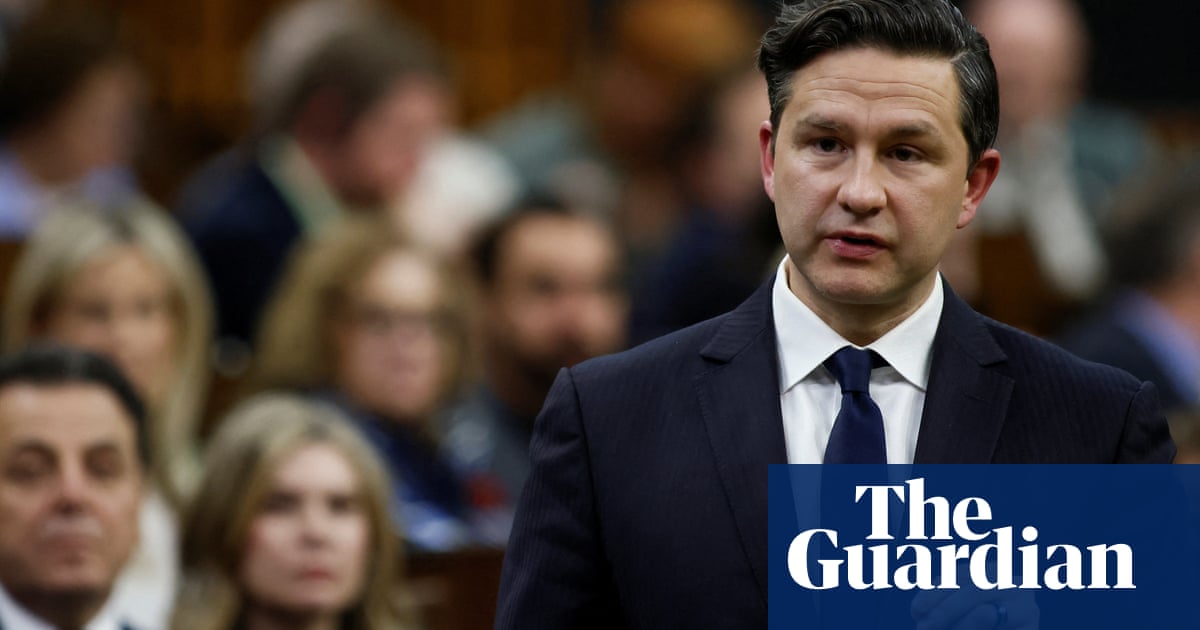[ad_1]
Canada’s Liberal and Conservative parties doubled down on their parliamentary clash a day after the Tory leader was expelled from the House of Commons for calling Justin Trudeau a “freak.”
Under the guise of a debate over British Columbia’s decision to decriminalize certain hard drugsWednesday’s parliamentary question period was dominated by deeply partisan attacks.
Conservative lawmakers also used the word “crazy” in their remarks, in a speaker’s test and the rules governing the House of Commons.
Long-standing tensions between the two parties, which are gearing up for an upcoming federal election, erupted on Tuesday after a bitter row between Conservative leader Pierre Poillievre and Trudeau.
The prime minister accused Poilievre of “shameful, spineless leadership” and suggested he sympathized with white nationalist groups.
The Conservative leader countered by calling Trudeau “crazy” and, when asked to retract the comment, suggested the words “radical” and “extremist” — both of which the speaker rejected.
House Speaker Greg Fergus accused Poilievre of disregarding the speaker’s authority and said, “I am ordering you to withdraw from the House … until the end of today’s session.”
The expulsion was a rare show of force by the speaker and a move with little precedent in recent decades.
Conservatives who walked out of the chamber in protest say Fergus was acting partisan by siding with Trudeau and called on him to step down.
“Speaker Fergus has no intention of resigning,” his spokesman said Wednesday.
Poilievre doubled down on Wednesday morning, saying he did not regret his choice of words.
“I can’t think of another word to describe what he [Trudeau] does in our communities… his politics are out of whack. Raising the carbon tax to 61 cents a litre: moron. Doubling housing costs: madness. Doubling the national debt and causing the worst inflation in 40 years is madness. And I just call it what it is,” he told CP24.
It is about the use of “unparliamentary language” which can take the form of “personal attacks, insults and profanity”.
Under parliamentary rules, the speaker can ask the offending party to withdraw the comment. If they refuse, they can ask to leave until the end of the meeting.
The Conservatives argue that the term “crazy” has been used before in the House of Commons without any consequence. But the rules also say the speaker “takes into account the tone, manner and intention of the member to speak” and “whether the remarks created disorder” in Parliament.
Opinions on Fergus’ decision fell along partisan lines.
“The fact that the leader of the Conservative Party of Canada he was kicked out because he was just doing his job, it’s a shame,” said Michelle Rempel Garner, a Conservative MP. Her colleague Michael Cooper called Fergus a “disgrace”.
Immigration Minister Mark Miller said Poilievre “never shut up in his life”.
“The things he is doing in the House of Commons are disgraceful. And he plays on it. He is a guy who likes to play outside the lines. When someone steps out of line to face him, he freezes,” Miller said.
Both the Conservative and Liberal parties took advantage of the ouster by sending emails to members and supporters in an attempt to attract donations.
[ad_2]
